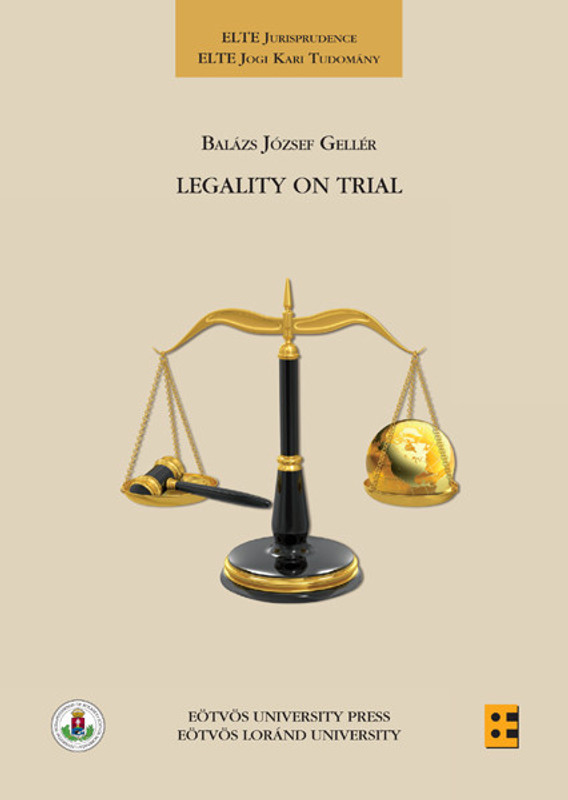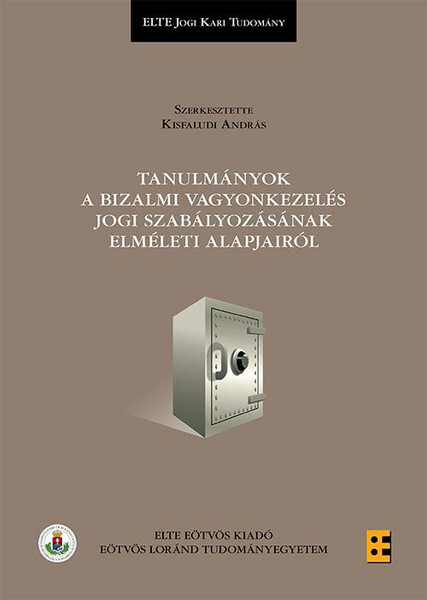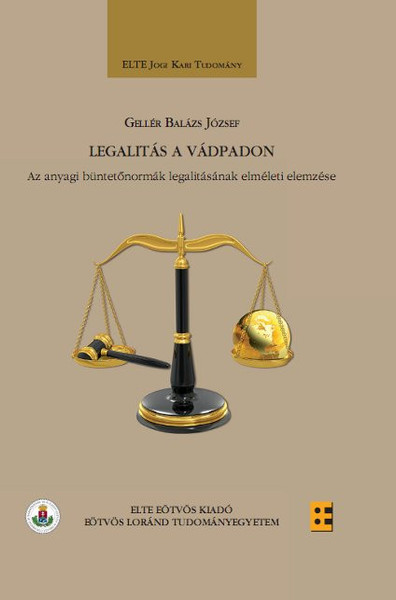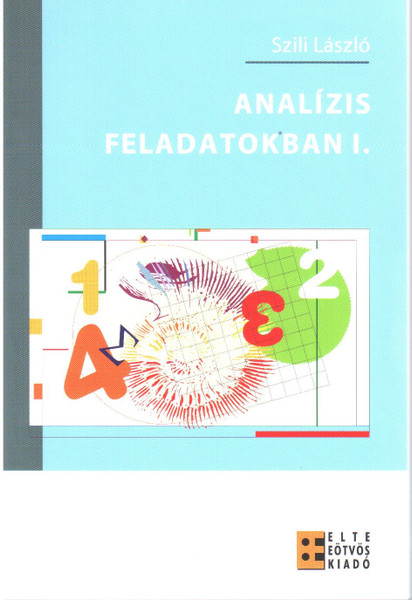Description
Legality on Trial – A Theoretical Analysis of the Legality of Substantive Criminal Norms / Softcover
Product Details
- Author: Gellér Balázs
- Publisher: ELTE Eötvös Kiadó Kft.
- Publication Year: 2012
- Place of Publication: Budapest
- Binding: Softcover (Kartonált)
- Language: English
- ISBN: 9789633120859 / 978-9633120859
- Product Type: Academic monograph (Criminal Law Theory, Legal Philosophy)
Overview
“Legality on Trial – A Theoretical Analysis of the Legality of Substantive Criminal Norms” by Balázs Gellér offers a profound and intellectually rigorous exploration of the principle of legality (nullum crimen, nulla poena sine lege) in the context of substantive criminal law.
The work investigates the tension between justice and legality, re-examining situations in which the pursuit of moral justice may seem to conflict with the traditional, formal understanding of legality. Gellér’s objective is to articulate a renewed conceptual framework for legality — one that maintains legal certainty while accommodating the demands of fairness and constitutional integrity.
Rather than adopting a fully comparative approach, the author constructs a universal theoretical foundation, arguing that every legal system shares a common normative core. By identifying and defining this core, Gellér seeks to provide a unifying philosophical understanding of legality applicable across diverse jurisdictions.
He contends that legality has a “Janus face”: it is simultaneously a principle of constitutional law and a measure of constitutionality within criminal law. Thus, a criminal law can violate legality — and therefore be unconstitutional — even in legal systems lacking a written constitution. Drawing from U.S. Supreme Court jurisprudence, English law, and Hungarian criminal law, Gellér demonstrates how constitutional interpretation and criminal legality intertwine in shaping the moral and legal legitimacy of punishment.
Hungarian Translation – Áttekintés
„Legality on Trial – A Theoretical Analysis of the Legality of Substantive Criminal Norms” című művében Gellér Balázs a büntetőjogi legalitás elvének mélyebb filozófiai és alkotmányos összefüggéseit elemzi.
A könyv központi kérdése, hogy miként oldható fel az ellentét az igazságosság és a jogszerűség között — vagyis mikor és hogyan ütközhet a morális igazságérzet a jogbiztonság elvével. A szerző célja egy újfajta legalitás-felfogás megfogalmazása, amely egyszerre biztosítja a törvényesség garanciáit és az emberi jogi, alkotmányos elvek érvényesülését.
Gellér szerint minden jogrendszerben létezik egy közös normatív mag, amely segíti a jogintézmények megértését. A szerző ezért nem összehasonlító jogi, hanem elméleti megközelítést választ, az érvek és példák relevanciáját a gondolatmenet logikai felépítéséhez igazítva.
A legalitás „Janus-arcú” elvként jelenik meg: egyszerre alkotmányjogi alapelv és a büntetőjog alkotmányosságának mércéje. A szerző bemutatja, hogy a legalitás megsértése akkor is alkotmányellenes lehet, ha az adott országban nincs írott alkotmány. A mű példákat hoz az amerikai Legfelsőbb Bíróság, az angol jog és a magyar büntetőjog gyakorlatából is, rávilágítva a legalitás nemzetközi és elméleti dimenzióira.
Product Features
- Subject Area: Criminal Law, Legal Theory, Constitutional Law, Philosophy of Law
- Core Topics: Principle of legality, justice vs. legality, constitutional dimensions of criminal law
- Approach: Theoretical and interdisciplinary; incorporates jurisprudence from the U.S., England, and Hungary
- Academic Level: Advanced legal scholars, jurists, and law students in criminal and constitutional theory
- Language: English
- Length: 316 pages
Interesting Facts
-
About the Author: Dr. Balázs Gellér is a professor at Eötvös Loránd University (ELTE), specializing in criminal law and legal philosophy. His research explores the relationship between legality, justice, and constitutionalism within modern criminal law.
-
Philosophical Basis: The book is deeply influenced by George Fletcher’s “Rethinking Criminal Law”, as well as Ronald Dworkin’s concept of law as integrity, both of which underpin Gellér’s analytical framework.
-
Methodology: Although not comparative in the traditional sense, Gellér employs cross-jurisdictional reasoning, showing how constitutional principles transcend national boundaries.
-
Legal Innovation: The author argues that criminal laws can be unconstitutional if they breach the principle of legality — even in systems without codified constitutions — thereby unifying moral justice and legal certainty.
-
Academic Recognition: This English-language edition extends Gellér’s influence to an international audience, positioning his ideas within broader debates on the philosophical legitimacy of punishment and legality.
Hungarian Translation – Érdekes Tények
-
A szerzőről: Dr. Gellér Balázs az ELTE Büntetőjogi Tanszékének professzora, aki a büntetőjog elméletének és filozófiájának nemzetközileg elismert kutatója.
-
Elméleti alapok: A könyv George Fletcher és Ronald Dworkin elméleteit követi, de azokat újragondolja a magyar és angolszász jogrendszerek tapasztalataival összefüggésben.
-
Új megközelítés: A szerző szerint a legalitás elve nem csupán formai, hanem alkotmányos és erkölcsi garancia, amely a jogállamiság alapfeltétele.
-
Nemzetközi kitekintés: A mű példákat és elveket merít az amerikai, angol és magyar joggyakorlatból, bemutatva a legalitás elvének globális érvényességét.
-
Tudományos jelentőség: A kötet az egyik legátfogóbb elméleti elemzés a büntetőjogi legalitás alkotmányos és filozófiai értelmezéséről, amely hidat képez a jog és erkölcs között.
Publishers
Published by ELTE Eötvös Kiadó Kft., Budapest, 2012. All rights reserved.
We value your feedback! Share your experience with this product to help others make informed decisions. Your review is important to us!
Hashtags
-
English: #BalázsGellér #LegalityOnTrial #CriminalLawTheory #LegalPhilosophy #ConstitutionalLaw #HumanRights #ELTEEötvösKiadó #HungarianScholarship #RuleOfLaw
-
Hungarian (Címkék): #GellérBalázs #Legalitás #Büntetőjog #Jogelmélet #Jogfilozófia #Alkotmányjog #Jogállamiság #ELTEEötvösKiadó #Jogtudomány







